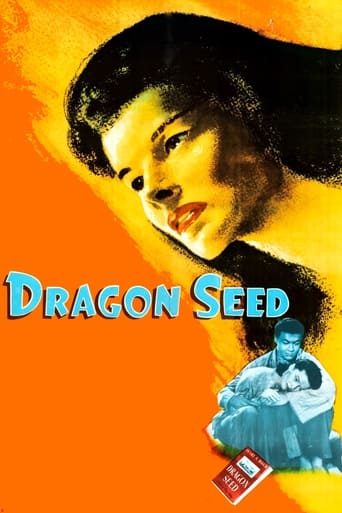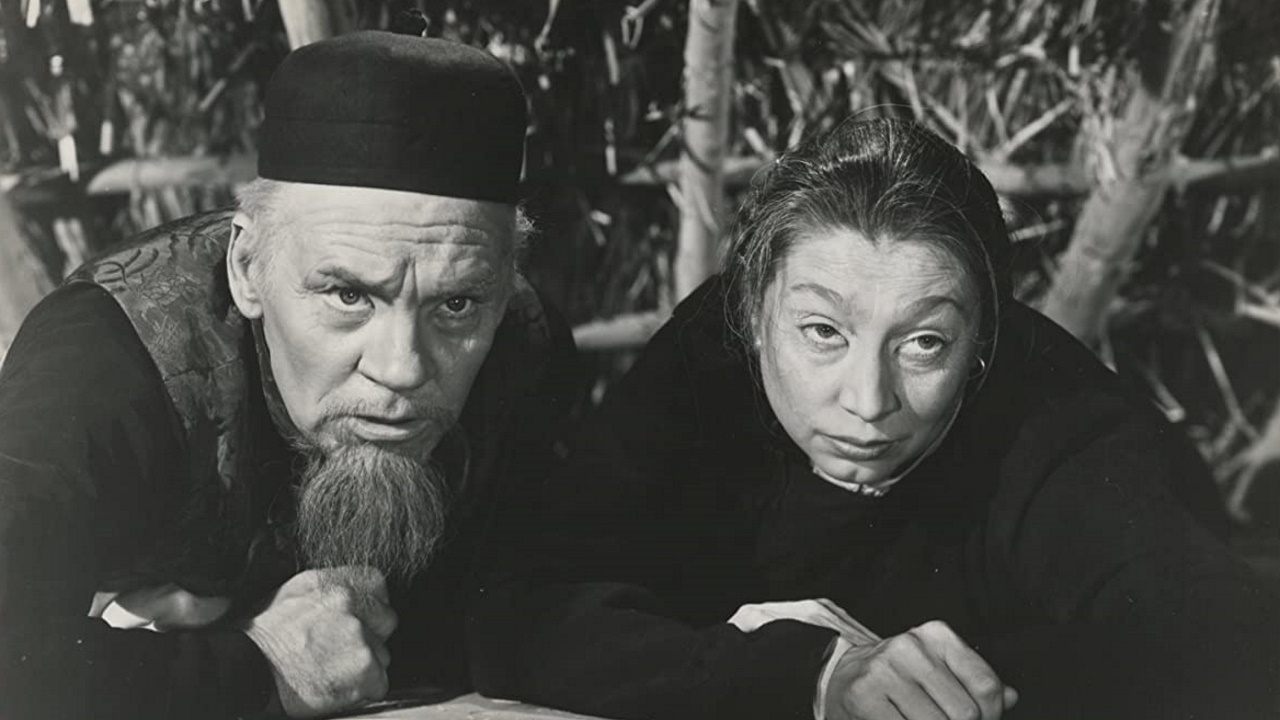GeoPierpont
Listening to the unique dialog, methods of address, and expressions of tenderness and love made me wonder if something was lost in translation. I imagined a Chinese translation of English 'Oh Honey!' might be 'I bow to my glorious powerful master'??? Seems when life is just a bare existence and immensely challenging women are treated with great respect to carry the load as well. Who knows but reading books, especially the Bible, was an executionable offense back in the day. I certainly remember my husband complaining he wished I never went to college so he would maintain his superiority. Ha! Like that routine would have lasted very long.So now we are worried about the potential invasion of China here while our debt is so precipitous and fear incites such a divisive destabilization of our country. You wonder how people survived such cruel inhumane treatment but this is no different than our treatment of many peoples we have occupied and conquered. I would appreciate those foreign films that address the reality of the Western Devil. Let's face it, men everywhere throughout the ages are mostly responsible for this mess and if women were to take over we could likely take advantage of the situation as well. Perhaps that is why there is such a concerted effort to maintain inequality because payback is going to be a b itch!I was able to move beyond seeing Clarence the Angel in his Fu Man Chu glasses and whiskers as well as Kate Hepburn with her Yankee accent. It is not difficult to take away sympathy for all oppressed people and be thankful for the many friends, family, security and those ever vital material possessions.High recommend for the scene of a great Chinese smörgåsbord of Duck Soup and the many wild and crazy ingredients that make this film memorable.
kyrat
I's "yellow-face" like many Hollywood films before it & after it. Even knowing the history of all-Caucasia casting for films, I just could not get over it. It was not just one character. It was ALL of them. And the accents were just so horribly East Coast I couldn't get over it. I kept trying to pretend that maybe the merchant had married into the family which is why he had a Russian accent & look more like he was from Manchuria. Every time I saw a non-Asian person or heard them speak it jarred me from the picture.That said, it was an interesting piece about war, the horrors of war. The showing of how the brothers reacted (killed only because he had to whereas the other killed because he grew to enjoy it). Showing the "collateral damage" consquences of war - it's more than the killing or bombing. It's the raping of women, the starvation of children, the looting, the wanton destruction, the submission & humiliation of everyone. Also interesting to see were how people react: isolationist -not wanting to know/get involved; actively involved in resistance and appeasement and currying favor with the enemy.It was interesting as a piece of propaganda to demonize the Japenese and to drum up support for the Chinese. (Note that while the main Chinese characters (the heroes) are all Caucasians, the Japanese (evil -doers) Hollywood managed to find enough Asians to cast).The movied earned itself several stars for it's feminist portrayal of a "modern" Chinese woman who wanted to read and be the equal to her husband. Something that was probably pretty radical in '37. This is why I still feel the film is worth watching (IMO). But only if you are fore-warned about how truly painful the miscasting is!
ResoluteGrunt
While trying hard not to be too condescending to Americans of today who somehow think the world was always as they now see it around them -- this movie was made in 1943, in the darkest midst of the horrific World War II, when America was engaged in a global struggle of epic proportions against the mighty Japanese Empire (and other very powerful allied nations all over the world), and when Manchuria, China and most of Asia were occupied by the very brutal Japanese invaders. The film was released to the public more than a year before that terrible war began to reach a conclusion.In 1944 America's victory in the Second World War was by no means assured, yet the US was trying to do whatever it could to assist the Chinese against the Japanese while the main US military forces fought the Japanese directly island by island westward across the Pacific. Of particular note is the fact that Japan had invaded Manchuria in 1931 and China in 1937, and that both suffered under merciless Japanese occupation for years before America formally entered the war following the Japanese attack on Pearl Harbor in 1941. The Japanese forces committed brutal atrocities against Chinese civilians and prisoners of war in the Rape of Nanking, slaughtering as many as 300,000 civilians within a month. Before it was over more than 10 million Chinese were mobilized by the Japanese army and enslaved for slave labor and at least 2,700,000 Chinese died. Japanese occupation atrocities against the Chinese included mass killings by airborne gasses on hundreds of separate occasions.The film, which was being made while all this was going on, but before most of the details were fully known, therefore reflects the American (and western) thinking at the time, as depicted through the keen expert eyes of the great China observer, American Pulitzer Prize-winning novelist Pearl S. Buck. It also reflects what was available to Hollywood film-makers at that desperate moment. Given the time and the circumstances, the movie does quite an adequate job - all of which undoubtedly explains the involvement in it of the great American actress Katharine Hepburn. The film helped Americans at that time to understand China's desperate situation, why the Chinese were worth assisting, and why the US military, and most Americans at home, were trying hard to do just that at truly great cost. Hepburn's name on theater marquees also ensured that many more people would see the film than otherwise.Americans in 1944 didn't care one bit that the Chinese characters were being played by Americans; audiences could easily imagine, empathize and understand. Very many of them had already read Buck's novel with the same title, published in 1942, and knew that the famous author, who had written many novels about China, had been a very vocal proponent of American understanding and support of China in her struggle with the Japanese. Pearl S. Buck had been awarded the Nobel Prize for Literature in 1938, mainly on the basis of her great China trilogy "The House Of Earth", including its first part, "The Good Earth".The Japanese surrendered unconditionally to the US on August 14, 1945, and Japanese troops in China formally surrendered to the Chinese a month later, but by then most of Manchuria and China had been destroyed. The people portrayed in the film had seen what the Japanese had done in Manchuria over the previous six years, and then experienced Japanese brutality directly for another eight years. The 14 years of China's monumental struggles in World War II were a pivotal point in China's history. Before the Japanese invasion, China had suffered nearly a century of humiliation at the hands of various imperialist powers and was relegated to a semi-colonial status. However, the war greatly enhanced China's resolve, strength and international status. After the war, the Republic of China became a founding member of the United Nations and a permanent member in the Security Council. China also reclaimed Manchuria.The movie therefore helps Americans today to understand a most critical moment in China's, and their own, common history, and why it all was, and remains, important.Old American Soldier
moonspinner55
When hard-working China is attacked by the power-hungry Japanese, a pre-feminist Chinese woman struggles with her family for survival; eventually she and her husband become fighters in the Resistance and help to influence their family and fellow villagers to join them. Hollywood product, with intentions that seem sincere, adapted from a Pearl Buck novel and starring...Katharine Hepburn? Actually, Kate is not flossy or "regal" here; she's nobody's fool and probably knows she's miscast, but her Asian make-up is commendable and she tries (not in vain) to find a character. In support, Walter Huston and Aline MacMahon, as Hepburn's Old World in-laws, are excellent. The movie has beautiful cinematography and absorbing passages, but its length is self-defeating and there are some howlers in the script and in much of the casting. Not a hit at the box-office, but by this time people were so used to Hepburn's hit-or-miss choices that it didn't hurt her. **1/2 from ****



 AD
AD



